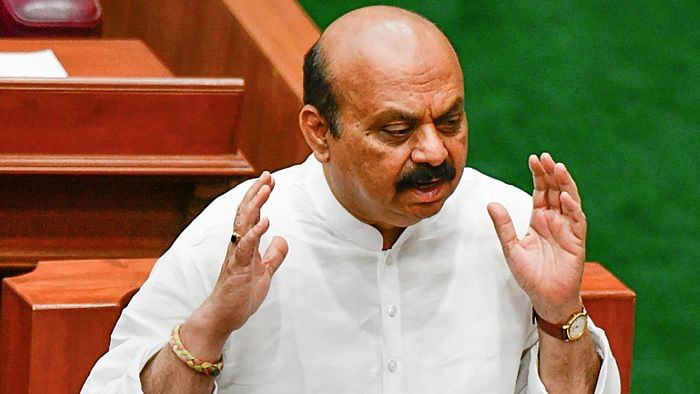
The Karnataka Cabinet on Thursday decided to promulgate an ordinance giving effect to a stringent law against religious conversion, prompting Bangalore Archbishop Peter Machado to urge Governor Thaawarchand Gehlot that he should not sign off on it.
The Karnataka Protection of Rights to Freedom of Religion Bill, popularly known as the Anti-Conversion Bill, will be sent to the Governor for assent folllowing the Cabinet decision.
"This is sad and surely it will affect the harmonious relationship that we enjoy with members of all the communities in Karnataka," Machado said in a statement.
Karnataka will become the 9th state to enact the anti-conversion law.
The controversial law prohibits "conversion from one religion to another religion by misrepresentation, force, fraud, undue influence, coercion, allurement or marriage".
The law proposes imprisonment of 3-5 years with a fine of Rs 25,000 for "forced" conversion. Converting a minor, woman or an SC/ST person will attract a jail term of 3-10 years, with a Rs 50,000 fine. Mass conversion will attract 3-10 years of jail time with a fine of up to Rs 1 lakh.
People wanting to convert are required to declare at least 60 days in advance to the deputy commissioner and within 30 days after the conversion.
The Bill was passed in the Assembly in December last year and did not go through the Council where the ruling BJP is one short of a majority.
"There have been no incidents, neither of conversion nor of aggressive incidents against the community. We can't understsand the sudden turn of events and what is there in the mind of the government," Machado said. "With the ordinance in hand, there's no doubt that the fringe elements will try to create problems for the members of our community as we have seen in the past and the government is in no control of them," he argued.
Machado urged the Governor not to approve the ordinance "given the nature of involvement of the Christian community" in education, healthcare and social welfare. He said Christians are "law abiding citizens" and the government can act against "any excesses or unlawful activities that are noticeable with concrete proofs".
Justifying the Cabinet decision, Law Minister J C Madhuswamy said the government is making use of a constitutional provision to promulgate an ordinance. "We had passed the Bill in the Assembly. It could not be passed in the Council due to various reasons. That's why we have promulgated an ordinance," he said.
